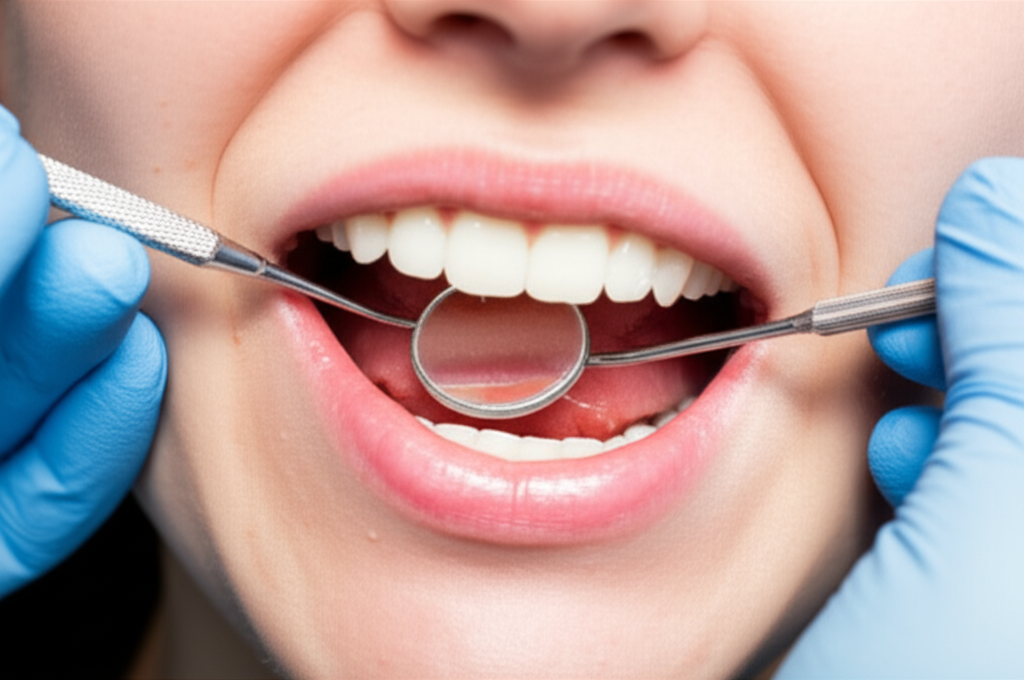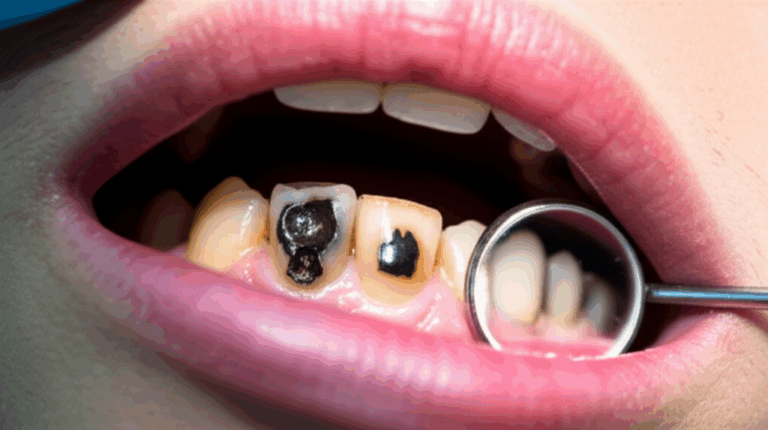
Can a Dentist “Glue” a Loose Tooth Back In? Understanding Dental Reattachment and Repair Options
Summary:
Ever worried about a wobbly or knocked-out tooth? Wonder if a dentist can really “glue” your tooth back in? You’re not alone. Many people get scared when they feel a tooth moving or after hurting their mouth. This article tells you in simple words what dentists actually do to fix, stick, or hold loose and broken teeth. You’ll learn about real dental treatments, why acting fast helps, and how you can save your real tooth. Keep reading—this could help you or your family keep smiling!
Table of Contents
1. Introduction: Why This Matters When Your Tooth Is Loose
Maybe you chewed into an apple, or maybe you hit your mouth. Suddenly, you feel a tooth moving. Or worse—it pops out! You quickly search: Can a dentist glue a loose tooth back in?
That question is important. You want a quick fix. Something to help with pain and not lose your tooth! Nobody wants a gap in their smile, no matter how old you are.
I remember when a friend’s kid lost a tooth playing soccer. His family rushed him to the dentist, not sure what would happen. They wanted to save the tooth.
This article will explain what you should know. I’ll tell you what dentists do, when they can help, and what you should do now to keep your own tooth.
2. What Does “Gluing” a Tooth Mean in Dentistry?
Let’s get something straight—dentists do not use super glue, hot glue, or any type of home glue on teeth. Never try home glue in your mouth! It can make you sick and will not work.
So, what does “gluing” mean? In dental work, the dentist uses special tooth glue, white filling materials, and dental cements. These are safe for mouths.
Here are some words you’ll hear at the dentist:
- Bonding: Sticking a piece of tooth or filling back on with special glue.
- Splinting: Using a small wire or strip to hold a loose tooth still.
- Re-implantation: Putting a whole knocked-out tooth back into its place and keeping it there.
The goal isn’t only to stick things together—it’s to help your tooth stay strong, work well, and look good.
Remember: Only dentists, such as those at a top china dental lab, have the right, safe materials for this.
3. Why Would a Tooth Become Loose?
Loose teeth can happen for many reasons. Here’s why:
- Injury: A blow to the mouth from sports, an accident, or a fall can knock a tooth loose.
- Gum Problems: If your gums are unhealthy (gum disease), they can’t hold teeth tight.
- Cavities or Infection: Holes or sore spots in the tooth or bone can make teeth loose.
- After Dental Work: Sometimes a tooth feels loose after getting fixed at the dentist, but this often gets better.
If your tooth feels loose, it means the stuff holding it—the tiny fibers and bone—has been hurt or weakened. That’s why seeing a dentist fast gives you the best shot at saving it.
4. Can You Really Save a Knocked-Out Tooth?
Yes, you can! If a grown-up tooth gets knocked all the way out (dentists call this an avulsed tooth), there’s still a chance to save it. But you need to be quick.
What to Do RIGHT AWAY:
- Find the tooth. Hold it by the top part (not the root).
- Don’t scrub or dry the tooth. Rinse it gently with milk, salt water, or real water if dirty.
- Try to put it back in the hole, if you can. If you can’t, keep it in milk or inside your cheek (not for little kids).
Time is super important. Get to a dentist within 30 to 60 minutes if you can. The sooner the better.
Here’s where to keep a knocked-out tooth before you get to the dentist:
| Storage Medium | Works Well? | Comments |
|---|---|---|
| Milk | Yes | Helps keep tooth alive |
| Salty Water | Yes | Good if milk isn’t there |
| Your Own Saliva | Okay | Try in a pinch |
| Water | Not Great | Tooth cells can die |
| Dry Napkin | No! | Tooth will die |
Things like how you handle it, how soon you get to the dentist, and the health of your mouth all matter.
5. What Should You Do If You Have a Loose Tooth?
Let’s say your tooth is loose, but still in your mouth. Here’s what to do—don’t wait!
First, don’t wiggle it or chew on it.
Second, call your dentist or an emergency dental office right away.
Third, keep the area clean, but brush gently.
Don’t try to fix the tooth with home glue or tape. That makes it worse.
Dentists use proper ways and safe supplies, like those from a digital dental lab, to help.
6. How Do Dentists Actually Fix or “Glue” Loose Teeth?
Modern dentists have lots of ways to repair, stick, or steady loose teeth:
A. Tooth Bonding and Reattachment
If you chip part of a tooth (like if you break off the corner), dentists may be able to put that chip back. They roughen the area a little, then use dental glue and white filling to hold it.
If you can’t find the lost part, or it’s too broken, the dentist can make a new piece that matches your tooth.
B. Splinting a Loose Tooth
If your tooth wiggles but is still in place, the dentist can “splint” it:
- A thin strip of wire or strong fiber connects the loose tooth to its neighbors.
- They stick the splint on with white filling material.
- The splint holds it still so the gums and bone can heal.
C. Re-implantation of Knocked-Out Tooth
If you get to the office fast, this might happen:
- The dentist numbs your mouth.
- They gently clean both tooth and socket.
- The tooth is carefully pushed back into place.
- The dentist splints it for a few weeks.
- Sometimes, you may need a root canal if the nerve is hurt.
Later, your dentist might need help from a crown and bridge lab if the tooth is weak and needs more support.
7. What Makes Tooth Repair Succeed or Fail?
Not every loose or lost tooth can be fixed, but many can. Here’s what matters:
- Type and size of damage: Small chips or a fresh accident are easier to fix than big breaks or teeth that have been out too long.
- Time: The faster you get to the dentist, the better.
- How the tooth is kept: Keeping the tooth wet and clean is super important.
- Health of gums and bone: If your gums are really sick, fixing the tooth is harder.
- How well you care for it afterward.
Dental Prognosis Table
| Injury Type | Repair Success? | Key Tips |
|---|---|---|
| Small chip | Very High | Save the broken piece if you can |
| Knocked-out tooth | Good if fast | Less than 1 hour, keep tooth wet |
| Loose tooth | Moderate | If quick, splint can help |
| Big break | Low | Might need pulled out |
| Root damage | Poor | Might need an implant or bridge |
8. When Can’t a Dentist “Glue” Your Tooth—and What Comes Next?
Sometimes, a tooth can’t be glued or fixed, for example:
- It’s been out for hours and got dry.
- The root is broken deep inside.
- There’s too much bone loss or bad gum disease.
- Big infection has killed the tooth or nearby tissue.
Don’t worry—there are still ways to help. Dentists can remove the tooth and put in a dental implant, bridge, or removable denture. Great labs can make new teeth that look real, so you don’t have to worry about your smile.
9. How Can You Prevent Loose or Broken Teeth?
They say, “It’s better to stop a problem than fix it later.” That’s true for teeth!
Simple Tips to Keep Teeth Strong:
- Wear a mouthguard for sports and rough play.
- Brush and floss every day.
- Visit your dentist for checkups.
- Don’t chew hard things, ice, or use your teeth to open stuff.
- Eat healthy food like fruits, veggies, and drink milk.
- Stay away from candy and sugary snacks.
Take care of your teeth and they’ll stay healthy a long time.
10. Real-Life Stories: When Dentist Bonding Saved the Day
Here’s a story. A little girl fell at the playground and knocked out a front tooth. Her family put the tooth in milk and came straight to the dentist.
The dentist was able to put the tooth back in, splint it, and after a root canal and healing, it looked good as new.
Another man broke a molar on popcorn. The dentist glued the broken piece back, and you couldn’t tell at all!
Dental supplies like white filling, fiber splints, and new ceramic teeth from dental ceramics labs make it easier to fix teeth than ever.
11. Frequently Asked Questions
Q1: Is dental glue from the drugstore safe for a loose or broken tooth?
No. Over-the-counter tooth glue is only for super short use, like keeping a crown in place until you reach the dentist. Never try it for loose or knocked-out teeth.
Q2: What if the loose tooth is a baby tooth, not a grown-up one?
If it’s a baby tooth, don’t put it back in the mouth or try to glue it. Go see the dentist. Usually, the dentist will either let it be or pull it. Your child’s adult tooth will come in later.
Q3: Does it hurt for dentist to splint or bond a loose tooth?
Most people say it doesn’t hurt. Dentists numb the area first.
Q4: How long does a glued tooth last?
If you look after it, a fixed tooth can last for years. The dentist will check it every visit.
Q5: Can gum disease make teeth loose?
Yes. That’s why you should brush, floss, and get regular cleanings.
12. Key Points to Remember
Here’s what to remember:
- Dentists use special tooth glue, not home glue.
- Act fast—time is important for saving teeth.
- Don’t try to fix your tooth at home. Go see a dentist.
- Saving a tooth depends on the type of injury, how quickly you go, and gum health.
- There are good options if your tooth can’t be saved, like implants or dentures.
- Taking care of your teeth is the best way to stop problems.
Table: Emergency Tooth Steps
| Problem | What To Do | What Not to Do |
|---|---|---|
| Loose tooth from accident | See dentist fast, be gentle | Wiggle or chew with tooth |
| Knocked-out grown-up tooth | Store in milk, go to dentist quickly | Let it dry, use home glue |
| Broken piece of tooth | Save piece, see dentist | Use glue or wait too long |
| Loose tooth from gum problems | Start gum care, see dentist | Ignore or try to fix at home |
Remember these steps, and you can help save your smile or someone else’s. Acting fast and going to the dentist makes all the difference!








